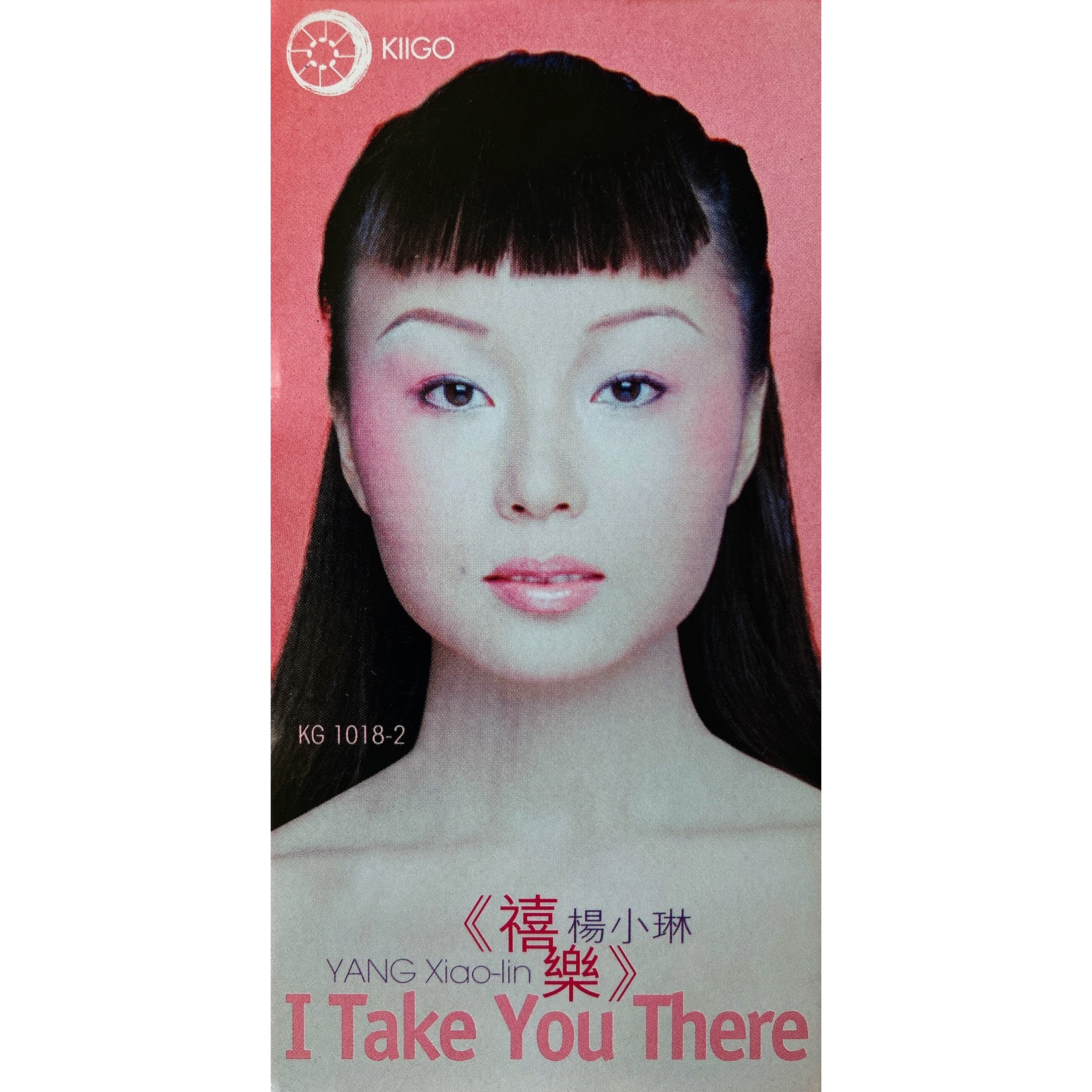The more I listen to Yang Xiao-lin’s 禧樂 (I Take You There), the more I’m impressed by how malleable folklore is. In the original liner notes, the words “elegant, pure, psychedelic, lively, remote and modern” are thrown as adjectives to describe this album. Myself, at first, I thought each word seemed to contradict the other…but the more I’ve lived with this album, the more I think whoever was tasked to pinpoint its appeal got it down pat. Yang Xiao-lin’s 禧樂 (I Take You There) takes you everywhere, all at once, into a “New Chinese Music”.
Yang Xiao-lin, sometimes, appears like the unlikeliest artist to bridge the gap between a backward-thinking version of Chinese music and a forward-thinking multi-hyphenated version of it. Born in the mountainous city of Shucheng County, alongside the Yangtze River, in Jiangnan, from a young age, Yang Xiao-lin could have been solely inspired by the cultural cues taken from adjacent megalopolises like Shanghai or Nanjing. Yet, the draw of her locale drew her in, developing a kinship to the poetry and song of the area’s Buddhist and Confucianist history.

When Yang Xiao-lin felt the urge to go elsewhere, and rather than head to Shanghai, she journeyed to Hong Kong to study English and Cantonese. It was in Hong Kong where Yang Xiao-lin was performing as a traditional singer that she was discovered by the HUGO record label and offered the opportunity to record. Gifted with what many call an almost “fairy-like” voice, together with composer Wu Xuan, they’d take centuries-old Chinese poems or Brahma music and adapt them with a contemporary twist.
1998’s Whisper Of Tenderness (绿蓑衣) would feature many of the songs that would ingratiate her contemporary Chinese audiences straddling the line between traditional song, and more experimental genre. This is where they had their first chance to hear beautiful love songs and field songs transformed by the influence of electronics and world music. Songs like “Deep In Love” and “As Time Goes By” share a parallel thinking with artists like Enya, deepening ethnic folkloric touchstones with atmospheric sonic touches. For a smashing debut, what it lacked was a sense of urgency or further distance from a reverence to its past.
禧樂 (I Take You There) would be a different painting altogether. Paired with the refreshingly experimental composer, Xu Lei, it appears Yang Xiao-lin wanted to stretch creatively, dramatically, and explore how to integrate more uptempo dance rhythms, Cantopop music, and trad-instrumentation into her folk-influenced music. This time around, Yang invited some of her more expressive label mates, like Zhang Weiliang, Liu Xing, and Aik Yew-Goh to flesh out their ideas.
You hear the transformation of Yang into some kind of ambient pop singer on tracks like “在那遙遠的地方 (Somewhere Far Away)”. Seconds into the track, a drum machine enters and Liu Xing commands it forward with strings of the zhongruan, inviting Yang to sneak away towards a more esoteric/ethereal kind of musical dream.

It’s this kind of surprise that continues next, flirting with Mongolian throat singing on “Pastorale”, somehow planting you into some kind of headfake before dowsing you headfirst into a “deep house” surface, bringing you closer to the headspace of artists like Dream Dolphin and the Orb, closer to the place they really were in. A song like “教我如何不想他 (How Can I Stop Missing Him)”, passionately, slows the tempo down with a hybrid of Tang and Song mantric singing married to a shifty, quicksilver, ambient, New Chinese Music – it’s breathtaking gorgeous in a way that feels both familiar and different.
Songs like “梭羅河 (Solo River)” and “化蝶 (Becoming Butterflies)” go even further in their own way. On the former, the jazz music of America appears transmogrified, taking on a different gas light, a different torch, becoming this mysterious, orientating, ballad that Liu carves out of his cello, existing entirely from something of Yan and Xu’s rhythmic, tonal, inspiration. There’s just something very rich in Yang Xiao-lin’s interpretation of “contemporary music”. It’s what drives another breathtaking song, “化蝶 (Becoming Butterflies)”, to simply dial-back, and let Yang take the reins, luxuriating in the beautiful tonal phrasing of the Chinese language – one that befits the nocturnal, delicate, longing in this impressionistic song.
Simply put: 禧樂 (I Take You There) is an impressive album. Impressively, more than a decade later, it still appears to give any listener a taste of the possibilities of just what a freer Chinese culture could achieve with full access to everything necessary develop their own voice. With it you can have totemic, urgent songs like “五彩雲霞 (Rainbow Clouds)”. With it you can find connections to the global folk scene, that are deeper than you think, in others like, “咿拉拉 (The New Moon Rising)”. With it that global dance of conversation we like to call “music” can achieve a special kind of dance floor connection, on songs like “牧歌 (的士高) (Pastorale (Disco))”.

Of course, at the end of the day, if we want Yang to “take us there”, we need to meet her “somewhere” in between, first.
